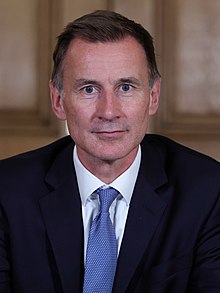
Contents
Who is the current Chancellor of the Exchequer? And what does the role entail?
The current Chancellor of the Exchequer is Rishi Sunak.
The role of Chancellor of the Exchequer is to manage the economy and public finances, including setting and collecting taxes, borrowing money on behalf of the government, and managing government spending.
Sunak was appointed to the role in February 2020, after previous Chancellor Sajid Javid resigned. Sunak has faced criticism for his handling of the COVID-19 pandemic and its economic impact, but he has also been praised for his quick actions to support businesses and workers during this time.
The Chancellor of the Exchequer is the head of Her Majesty’s Treasury, which is the United Kingdom’s economic and finance ministry. The current Chancellor is Rishi Sunak, who was appointed by Prime Minister Boris Johnson in 2019.
Sunak has presided over a period of significant economic upheaval caused by the COVID-19 pandemic.
He has responded with a series of unprecedented measures to try and mitigate the damage to the economy, including large scale fiscal stimulus packages.
The Office of Chancellor of the Exchequer has been in existence since 1066, making it one of the oldest government offices in continuous operation. It is considered to be one of the most powerful positions in the British government.
The Chancellor is responsible for setting and overseeing economic policy, preparing and presenting the annual budget, collecting taxes, and managing public spending. They are also responsible for chairing meetings of HM Treasury ministers (known as ‘Treasury Board’).
Who were the Last 5 Chancellors of the Exchequer
The Last 5 Chancellors of the Exchequer have been:
George Osborne (2016-present)
Philip Hammond (2016)
Norman Lamont (1992-1993)
Kenneth Clarke (1993-1997)

Credit: www.altfi.com
Who are the 4 Chancellors of the Exchequer?
In the United Kingdom, the Chancellor of the Exchequer is the head of Her Majesty’s Treasury, which is a department of the Government of the United Kingdom. The current Chancellor is Rishi Sunak, who was appointed by Prime Minister Boris Johnson on 13 February 2020.
Sunak has been serving as the Member of Parliament (MP) for Richmond (Yorks) since 2015 and was previously a junior minister at the Ministry of Housing, Communities and Local Government from 2018 to 2019.
Prior to his political career, he worked as an investment banker at Goldman Sachs from 2000 to 2004 before co-founding hedge fund management firm Southridge Capital Management in 2006.
The three most recent holders of the office before Sunak were Sajid Javid, Philip Hammond and George Osborne; each representing different factions within the Conservative Party. Javid resigned in 2020 after disagreements with Prime Minister Johnson over coronavirus spending plans; Hammond was sacked in 2019 after voting against then-Prime Minister Theresa May’s Brexit withdrawal agreement; Osborne stepped down in 2016 after being appointed editor of London’s Evening Standard newspaper.
What is Exchequer Chancellor?
The Exchequer Chancellor is the head of the Treasury, and is responsible for all financial matters relating to the government. The position is currently held by Rishi Sunak.
Why is It Called Chancellor of the Exchequer?
The Chancellor of the Exchequer is the government minister responsible for all economic and financial policy in the United Kingdom. The office-holder controls public spending and taxation, and develops and implements financial strategy and policy. The current chancellor is Rishi Sunak, who was appointed by Prime Minister Boris Johnson on 13 February 2020.
The name “Chancellor of the Exchequer” dates back to the early 12th century when it referred to the officer responsible for collecting taxes from the English exchequer. This was a table used by medieval English kings to keep track of their income and expenditure. The word “exchequer” comes from a Latin word meaning “counter”, referring to the physical counting board used by early chancellors.
Over time, the role of the Chancellor became more focused on financial matters, and by the 18th century it had become synonymous with the Treasury.
Where is the Chancellor of the Exchequer Today?
The Rt Hon. the Chancellor of the Exchequer is in his office today.
Conclusion
The Chancellor of the Exchequer is the British government minister responsible for all economic and financial matters. The current Chancellor is Rishi Sunak, who was appointed by Prime Minister Boris Johnson in 2019.
Sunak has been a Member of Parliament (MP) since 2015 and previously served as Chief Secretary to the Treasury under Theresa May.
He also worked as an investment banker at Goldman Sachs before entering politics.
The Chancellor’s main responsibilities include setting fiscal policy, managing public finances, and overseeing economic policy. They also have significant influence over taxation and spending decisions.
The Office of the Chancellor of the Exchequer has been in existence since the 12th century, making it one of the oldest government departments in the UK. The title “Chancellor” comes from the Latin word for “count” or “financial officer”.